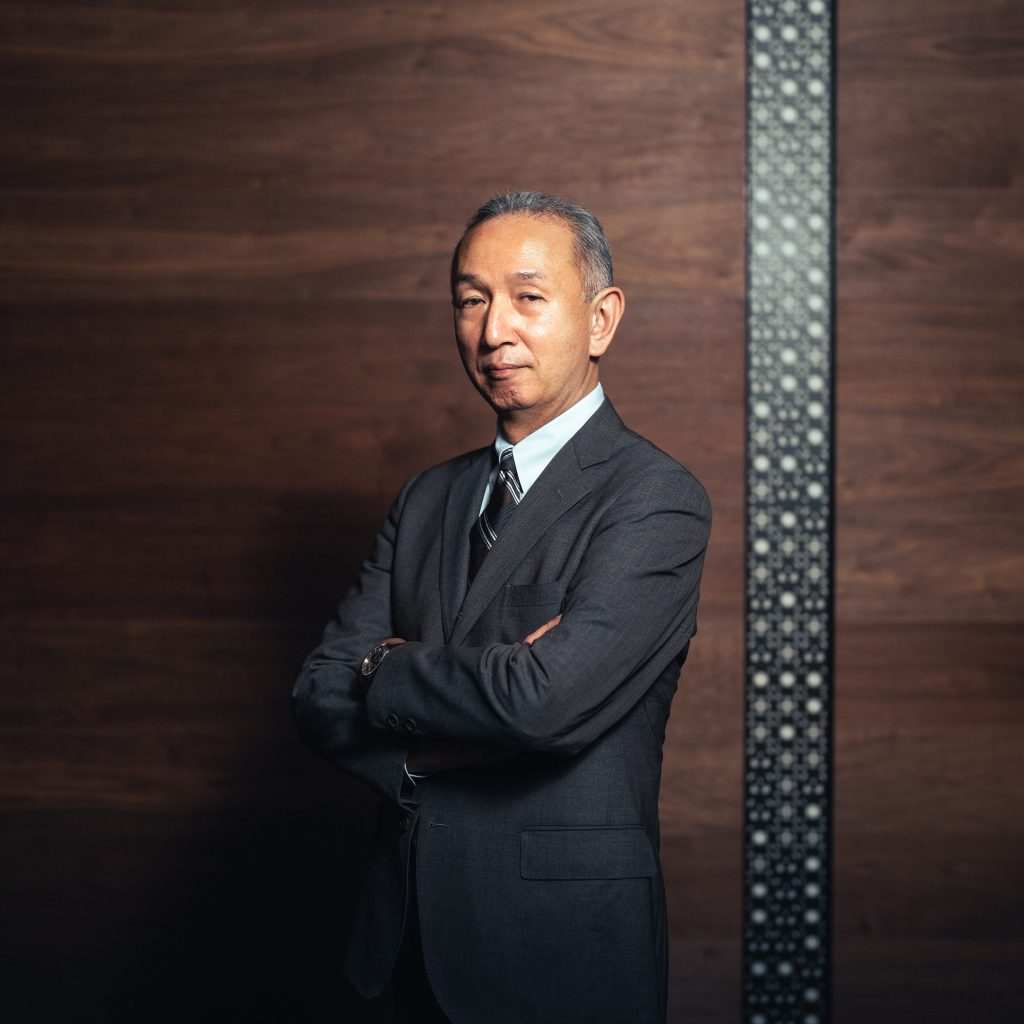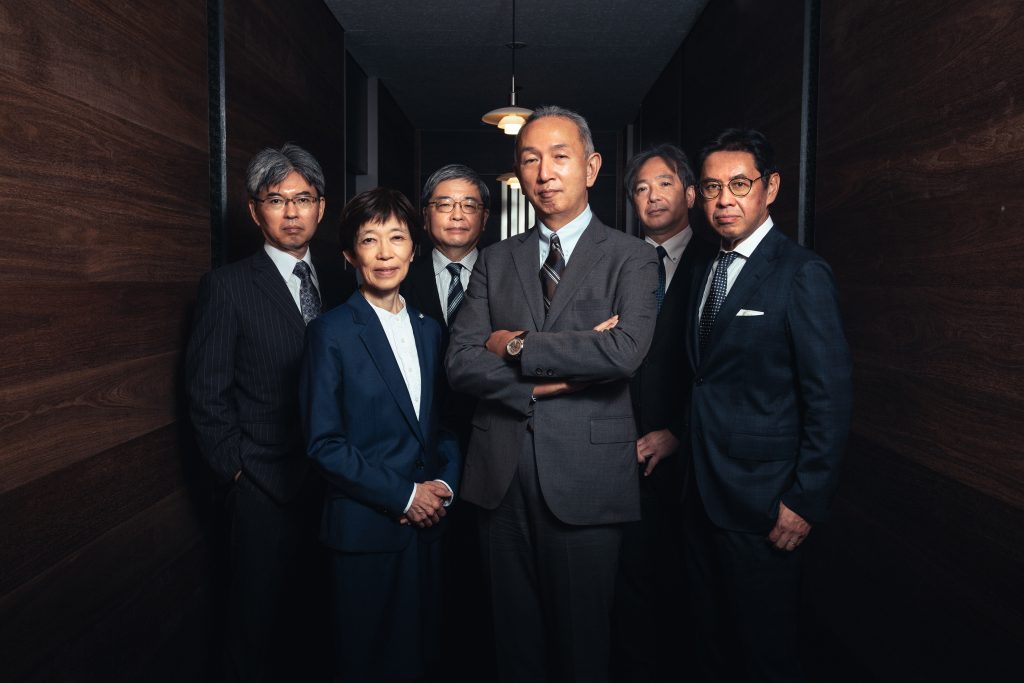Connecting Wisdom, Through Wisdom: Reflecting on my Eight Years as President -Part 3-

Since assuming office in 2017, President Terumichi has been at the University’s helm, weaving the history of Sophia. Before the end of his eight-year term, we look back on his efforts during his tenure and his thoughts during that time in a three-part series.
In an Era of Lifelong Learning, the Power to Design One’s Studies Matters
Universities are a place where students come to grow. However, personal growth is something that continues even after graduation. The same philosophy applies to learning. In an era of lifelong learning, universities are not the final opportunity to learn. From this perspective, universities can be said to be where we build the foundation for lifelong learning and leading a fulfilling life in this constantly evolving world.
Therefore, “Liberal Education and Learning (Kiban-Kyoiku)” is the name we have chosen for the four years of undergraduate study at Sophia, as it nurtures the basis for being a lifelong learner. The university-wide general education courses, revamped in the 2022 academic year, represents this Liberal Education and Learning.
In these university-wide general education courses, subjects are not only arranged horizontally across categories such as “Integral Understanding of Humanity,” “Foundations of Thinking,” and “Knowledge Development and Exploration,” but also vertically, from introductory to advanced levels. This means that these subjects are not just studied in the early years as a foundation for specialized fields, but are also designed to serve as tools for deepening and expanding expertise in the third and fourth years.
Through this system, students learn to design their studies — choosing what to study and carving their own paths. For example, there is a third-year student from the humanities who is currently deeply immersed in an applied data science course offered under ‘Foundations of Thinking.’ With plans to start a business, this student realized the need for data analysis skills and has been regularly working with the course’s instructor. There was also a student who completely changed their career path after taking an “Experiential Learning” course – part of the “Knowledge Development and Exploration” category.
Nowadays, when everyone is expected to discover their own way of working and living, and can experience multiple careers and roles, the one skill I’ve wished for students to develop since becoming university president is the ability to design their studies. From elementary school through university, Japan’s educational framework is highly structured and of exceptional quality.
However, for those accustomed to achieving within these given frameworks, it can be challenging to enter the workforce and suddenly be told to think freely or innovate. That is why, alongside promoting Liberal Education and Learning, we have opened our campus to those outside of the traditional undergraduate group and enhanced extracurricular learning opportunities.
Our goal is to create an environment where students can cultivate the ability to design a path for their studies and consider how to contribute to society without being confined by existing frameworks.
The Enduring Power of Nurturing People on Campus
From the establishment of the Faculty of Global Studies during my time as Vice President, to the launch of the Sophia Program for Sustainable Futures (SPSF), the introduction of Liberal Education and Learning, and the creation of The Office of Sophia Future Design Platform (SFDP Office), I have been involved in several major reforms.
However, these initiatives were not solely born from my own ideas — rather, they were a continuation of the university’s long-standing journey, following the path laid out by its history. The direction that Sophia University is taking is deeply rooted and passed down through our history, regardless of whether I serve as its president. Encouraging of this point, I’ve seen various supportive initiatives independently advance across the campus.
For example, in research, several recent initiatives are reflective of the university’s values. In the 2023 academic year, a study aimed at mitigating salt damage in collaboration with local communities in Egypt, led by Professor Erina Iwasaki from the Department of French Studies in the Faculty of Foreign Studies, was selected for the SATREPS program — an international joint research support initiative by the government and JICA.
In the 2024 academic year, a research team focused on Education for Sustainable Development (ESD) in Asia, led by Professor Miki Sugimura from the Department of Education in the Faculty of Human Sciences, was selected for the ‘UNESCO Chair’ program, working in partnership with UNESCO. Both projects embody the university’s ethos of “For Others, With Others.”
Although I am not a graduate of Sophia University, I still strongly feel that this institution nurtured me. When I joined as an associate professor in 1998, I may not have been fully aware of the need to carry Sophia University’s spirit. However, as I engaged with students and faculty, listened to the concerns of high school students, and spoke with academics from around the world at international conferences, I noticed a common thread — everyone spoke of their high expectations for Sophia University. Wherever I went in the world, it became an opportunity to learn about this university. Before I knew it, I naturally found myself wanting to support the mission that Sophia University strives to fulfill on the global stage.
Over the past eight years, I have devoted myself to refining the vision of Sophia University — a vision shaped by its past and present members, as well as by the expectations of society. The experiences I have gained through the lens of Sophia University have broadened and deepened my perspective and thinking far beyond what they were before I joined. It may be presumptuous to say that I have ‘grown’ during these years, but I firmly believe that this campus, along with the history that lives and breathes within it, holds a profound power to nurture people.
